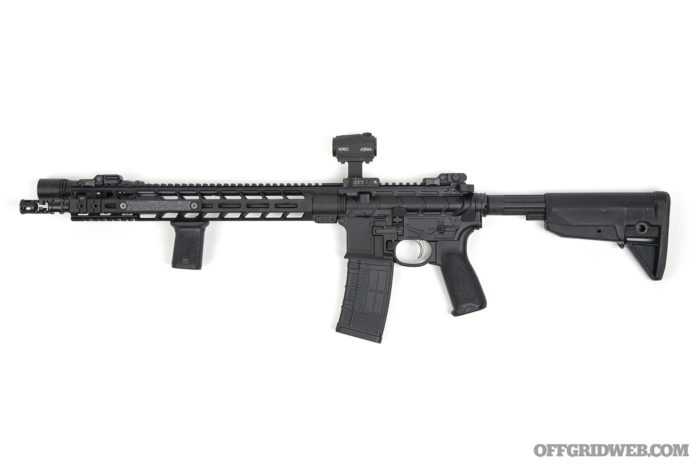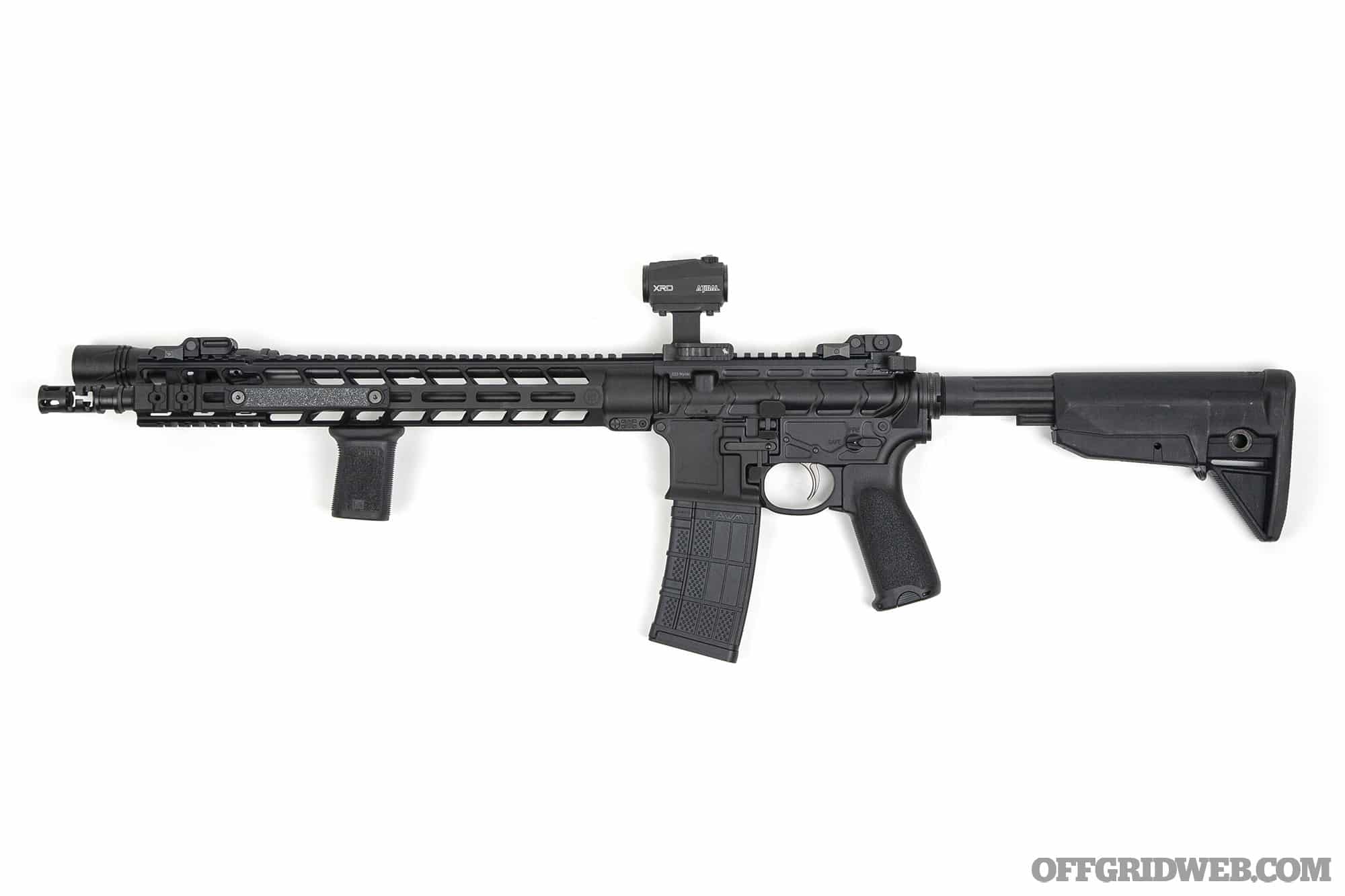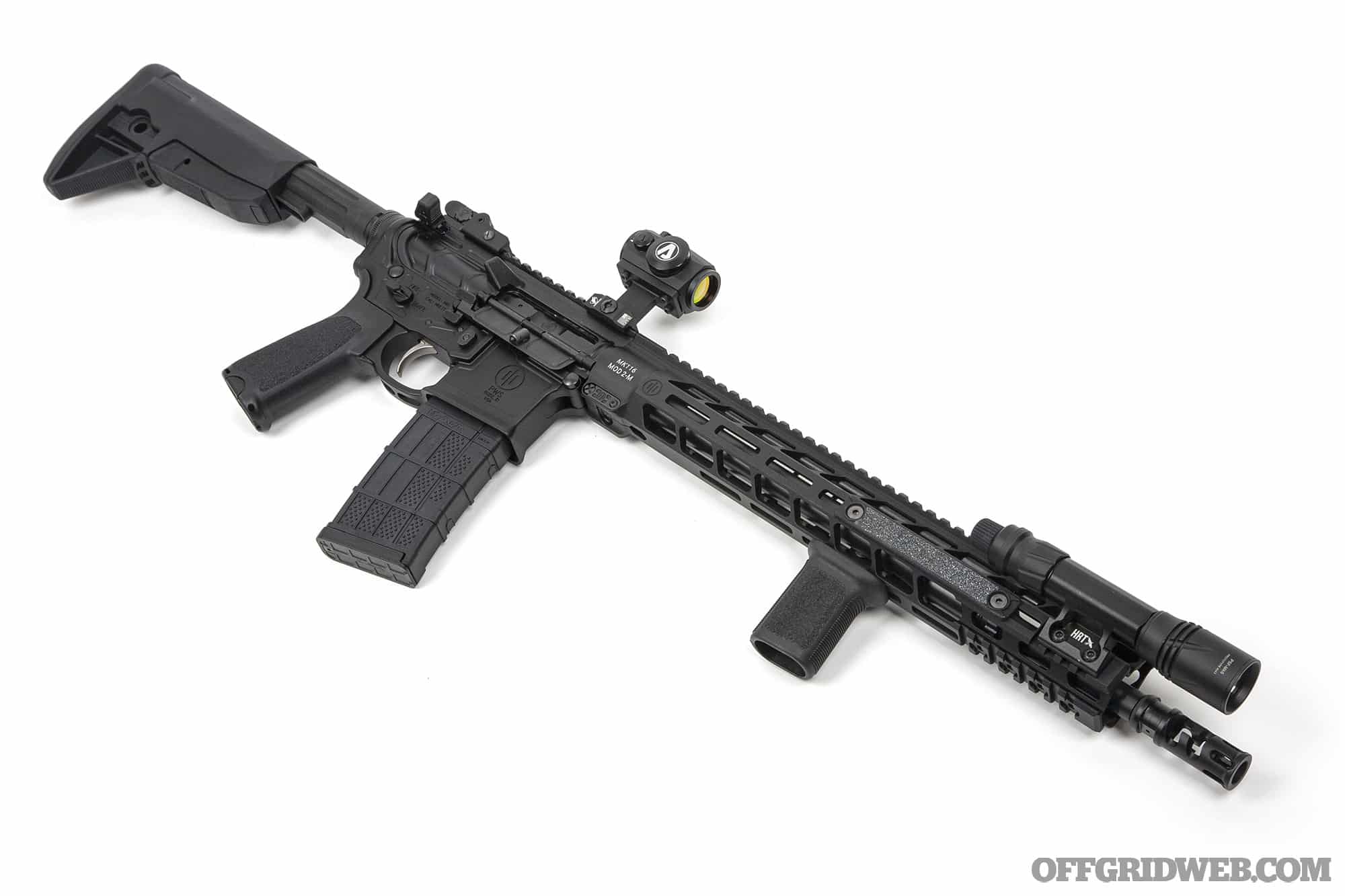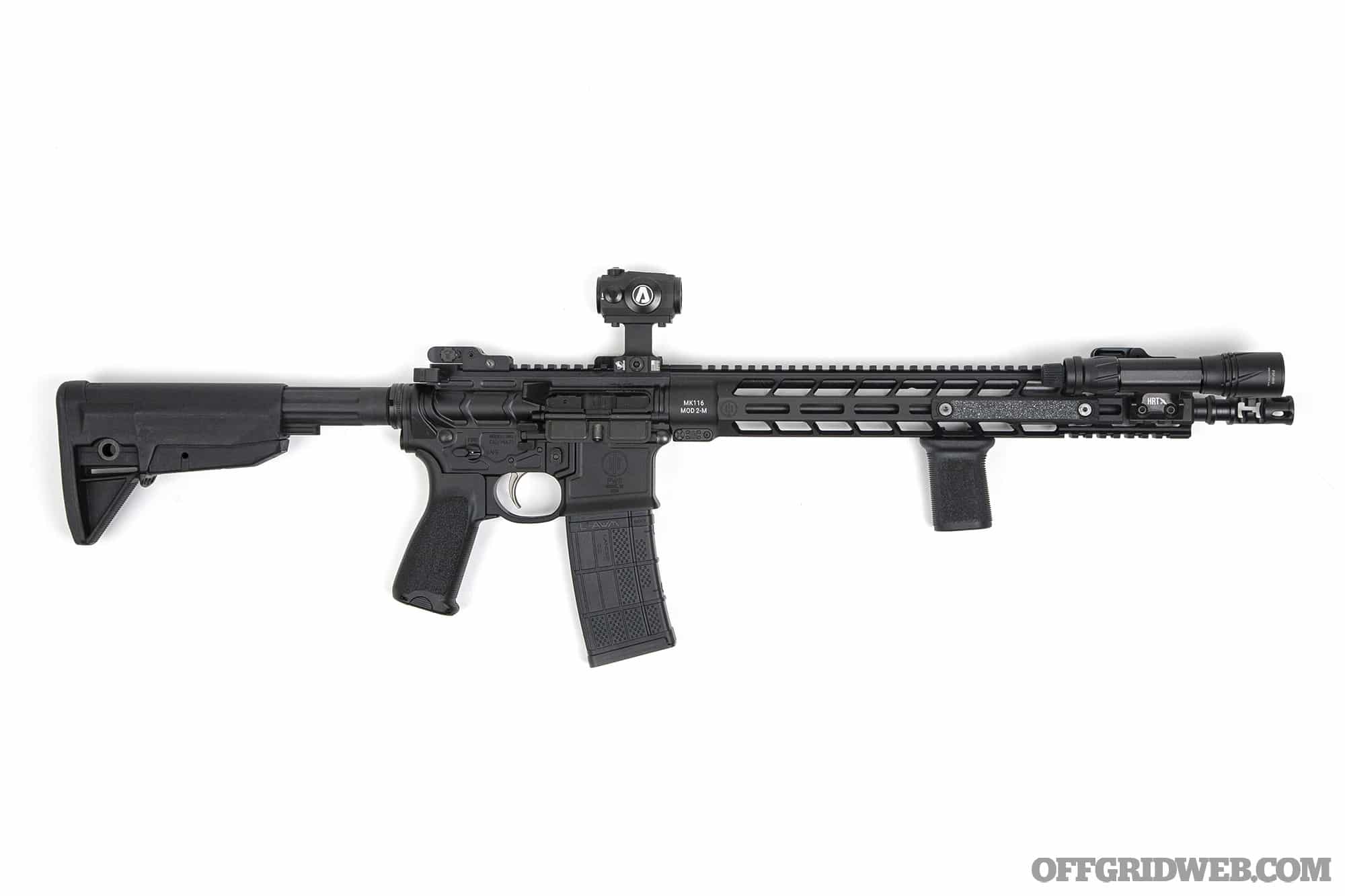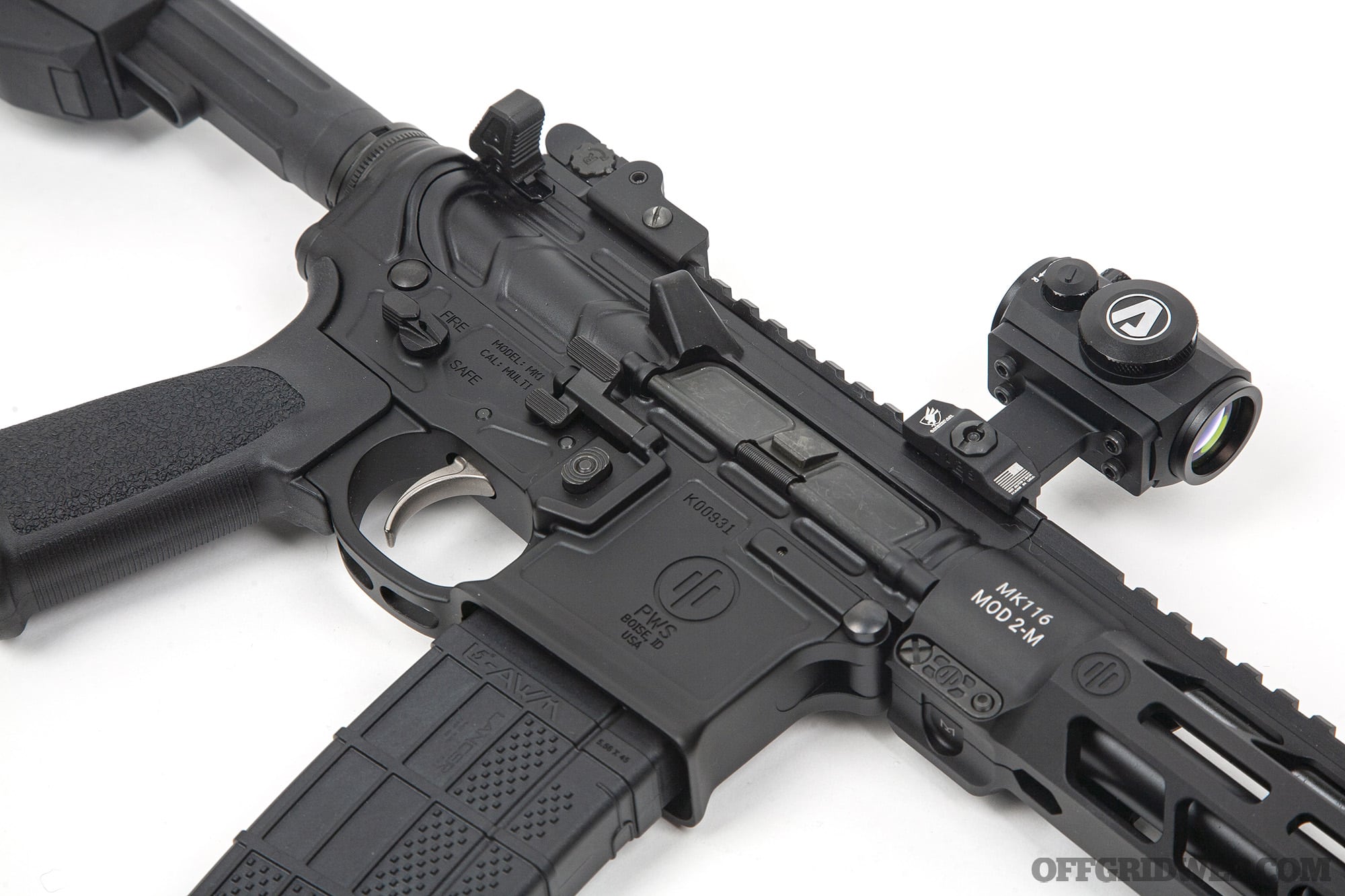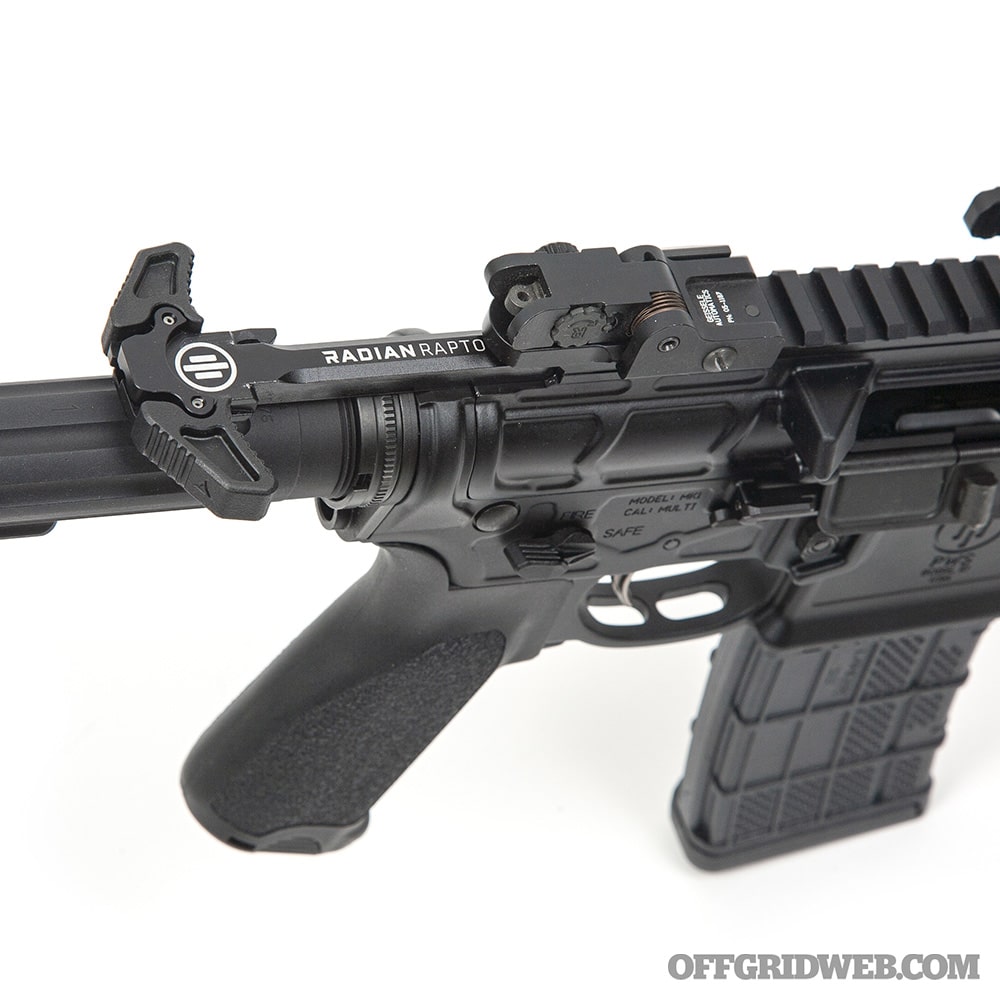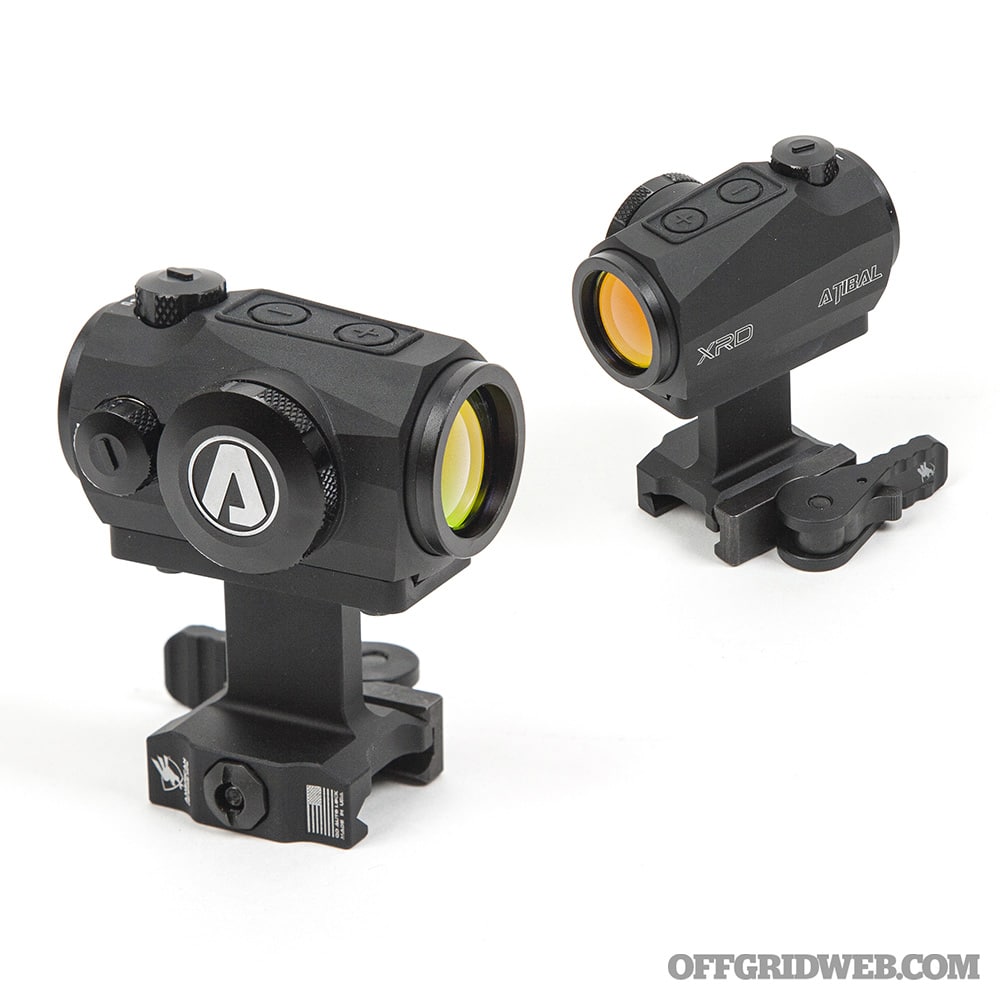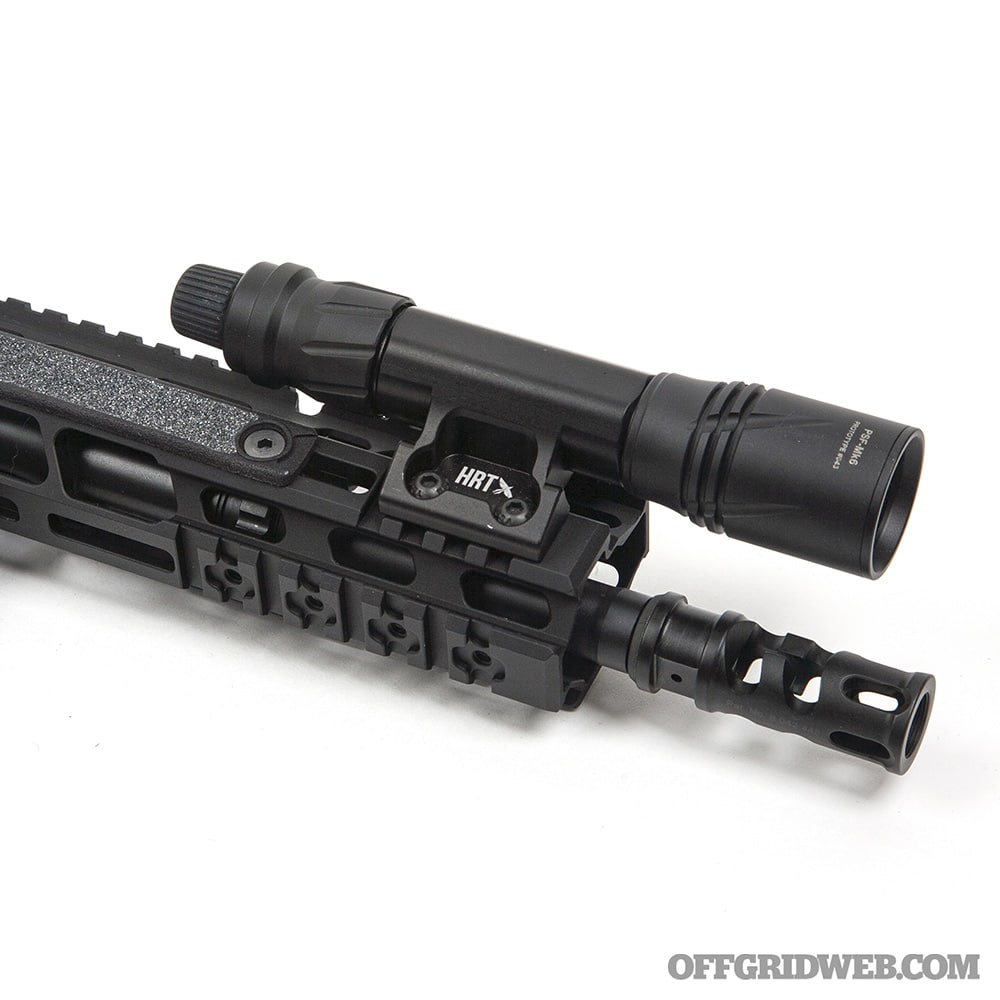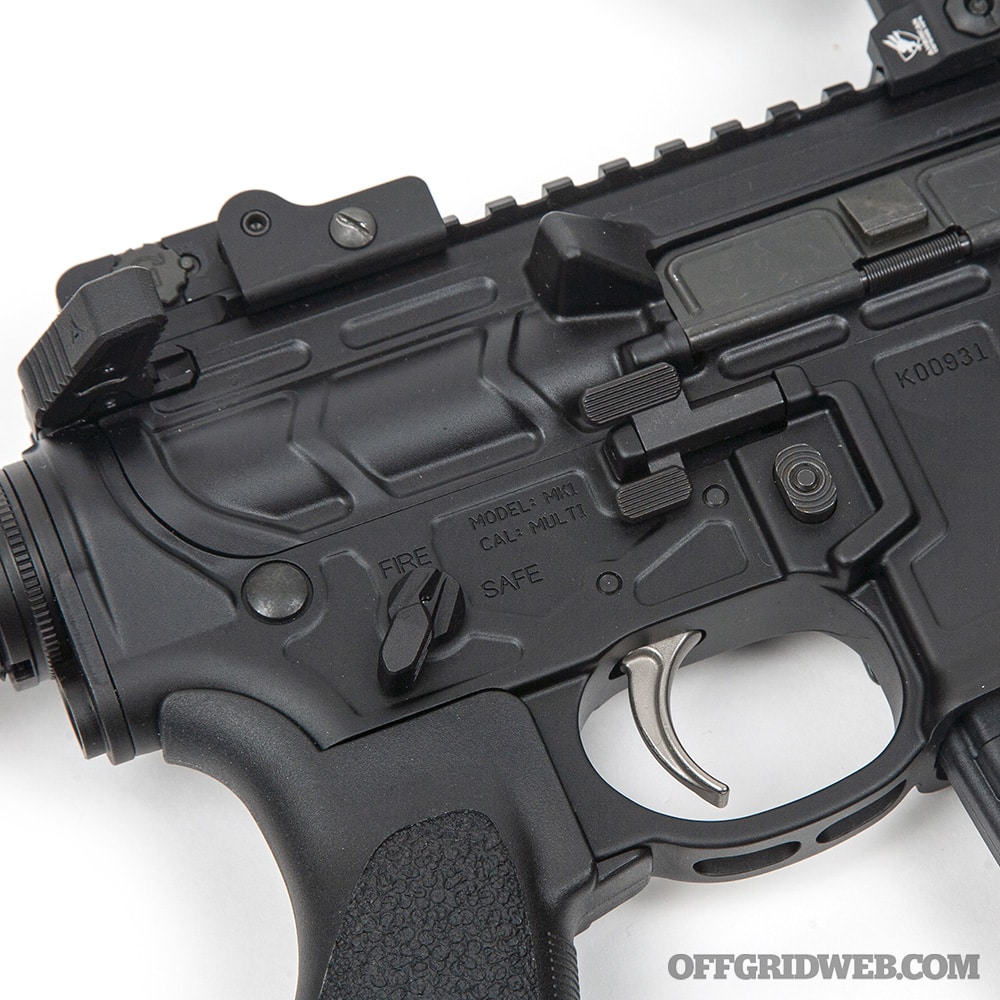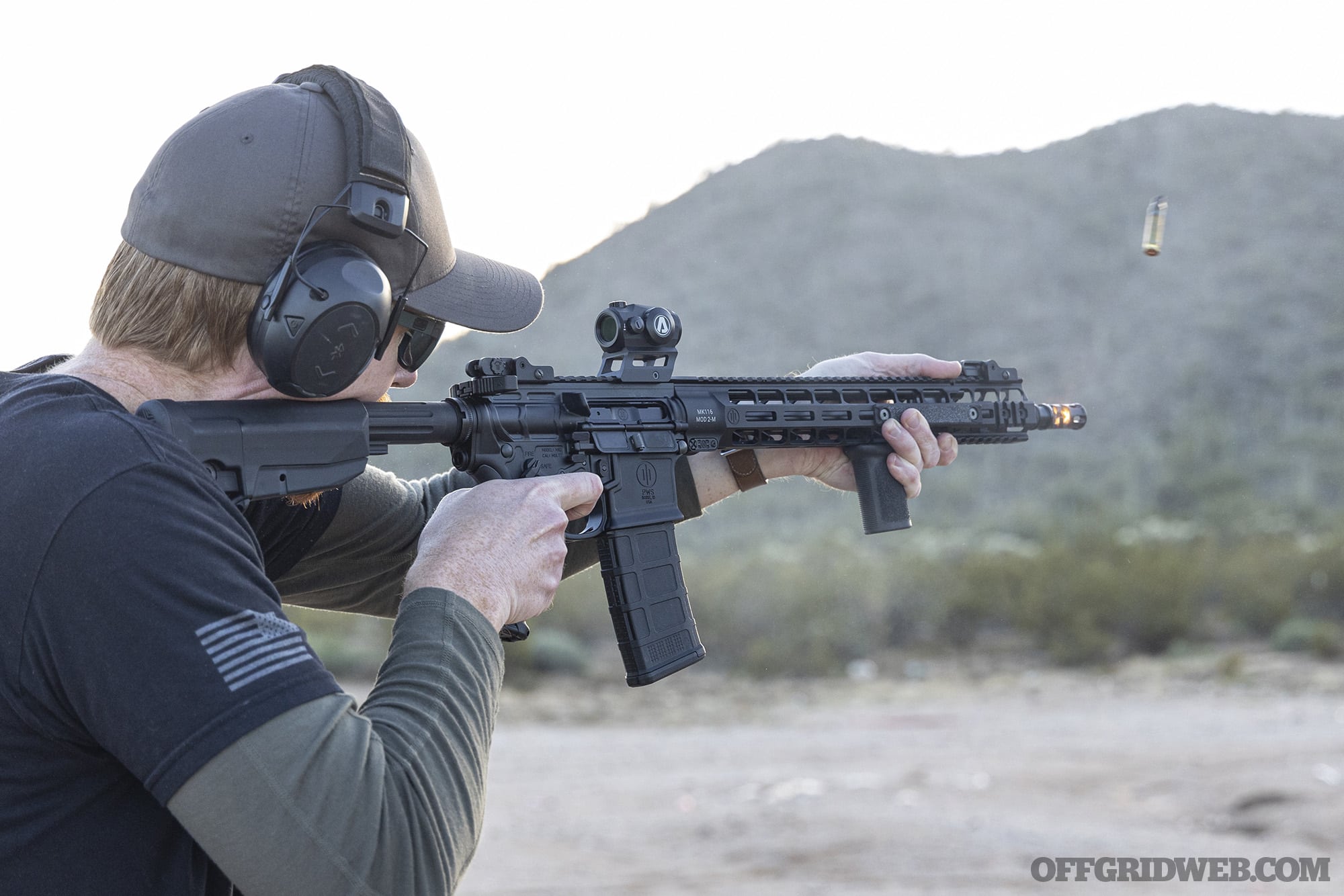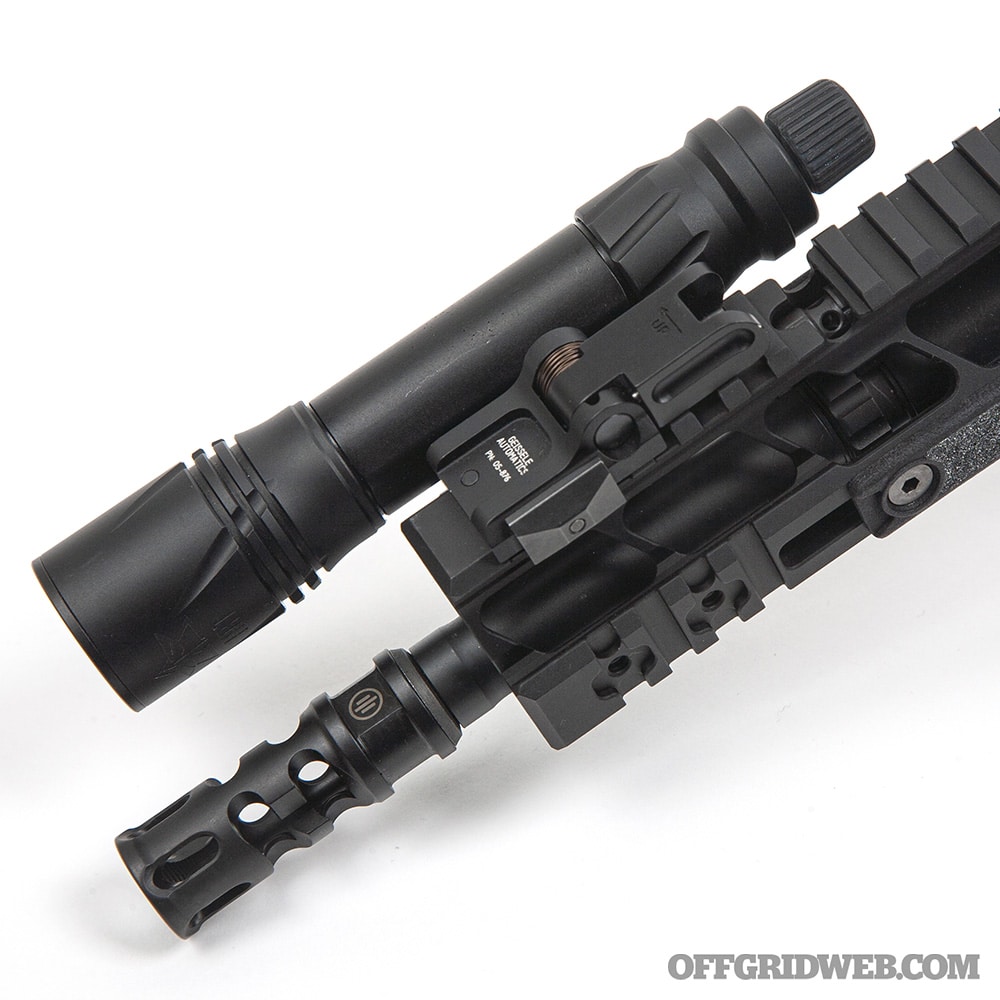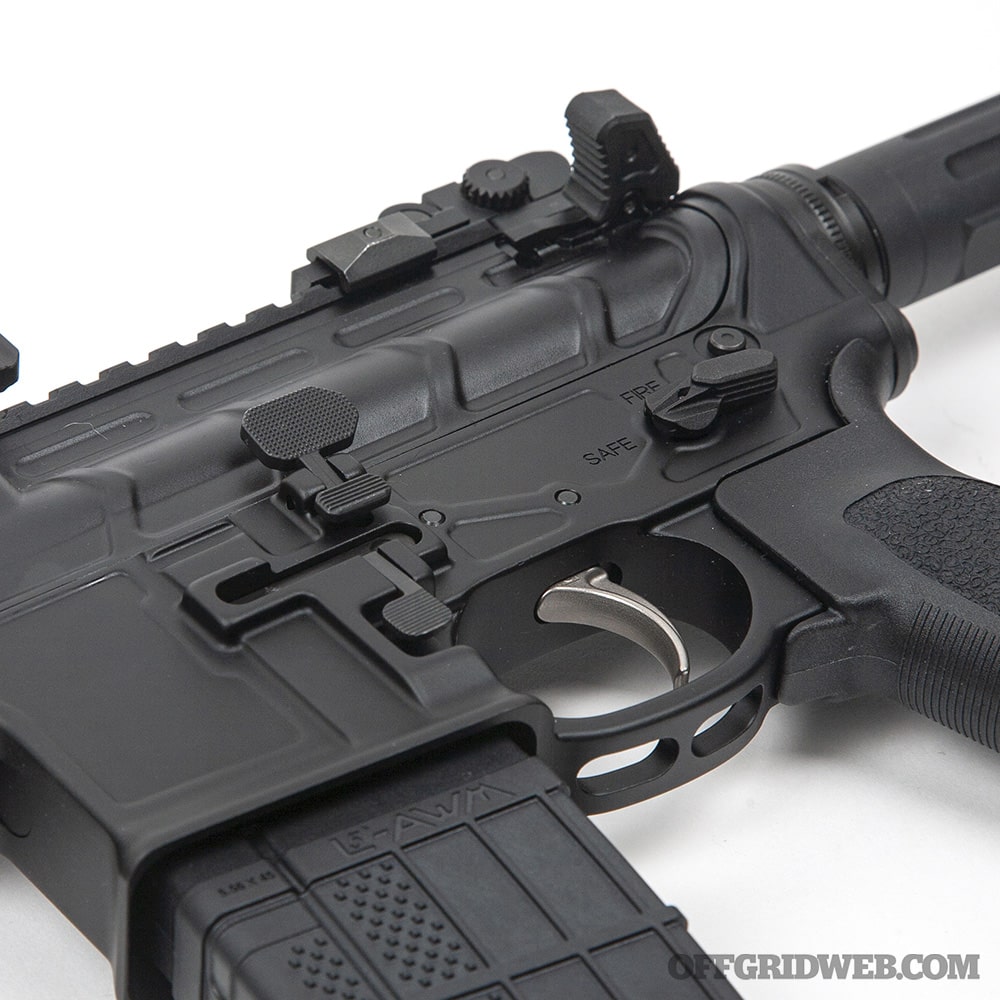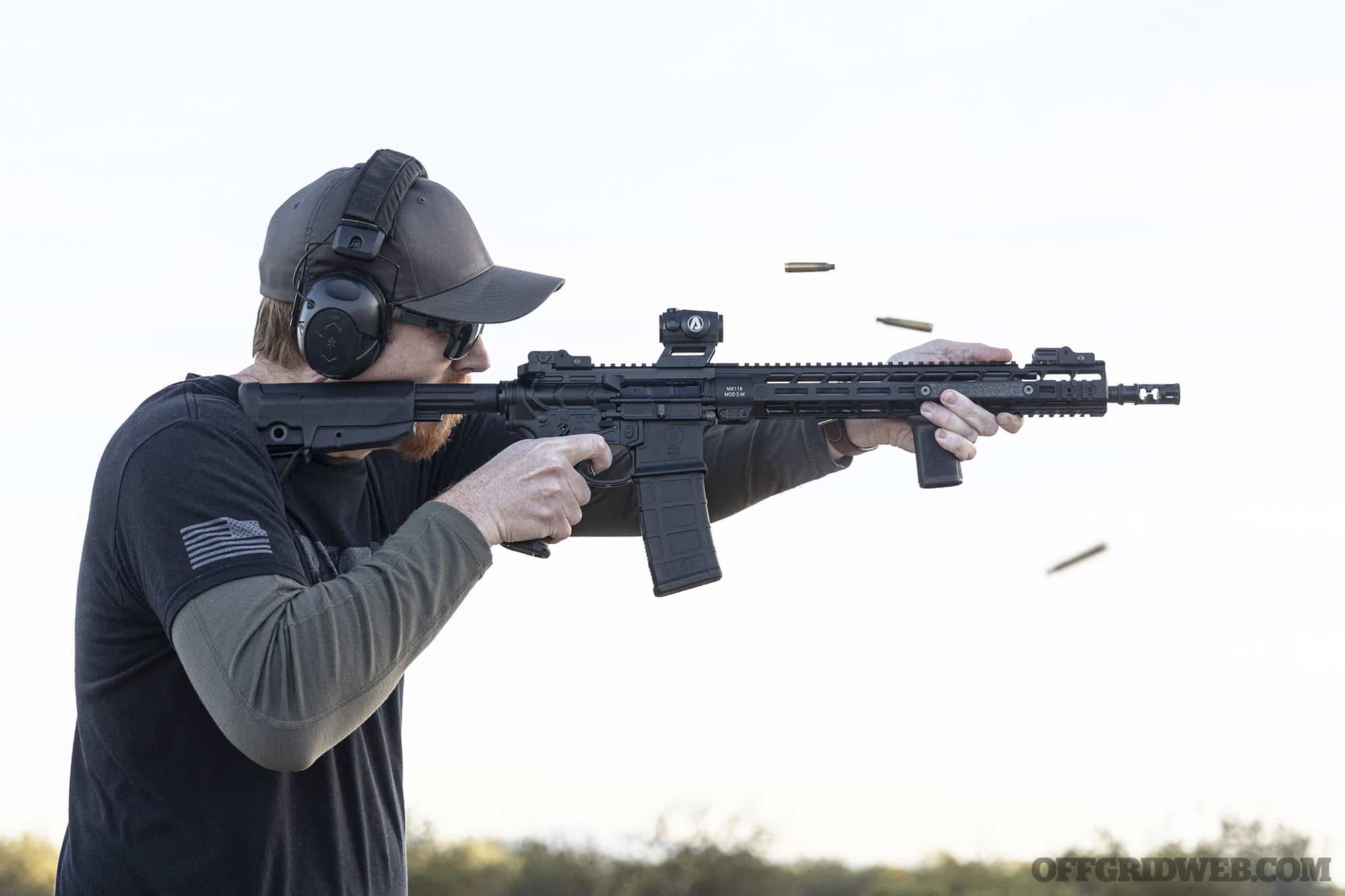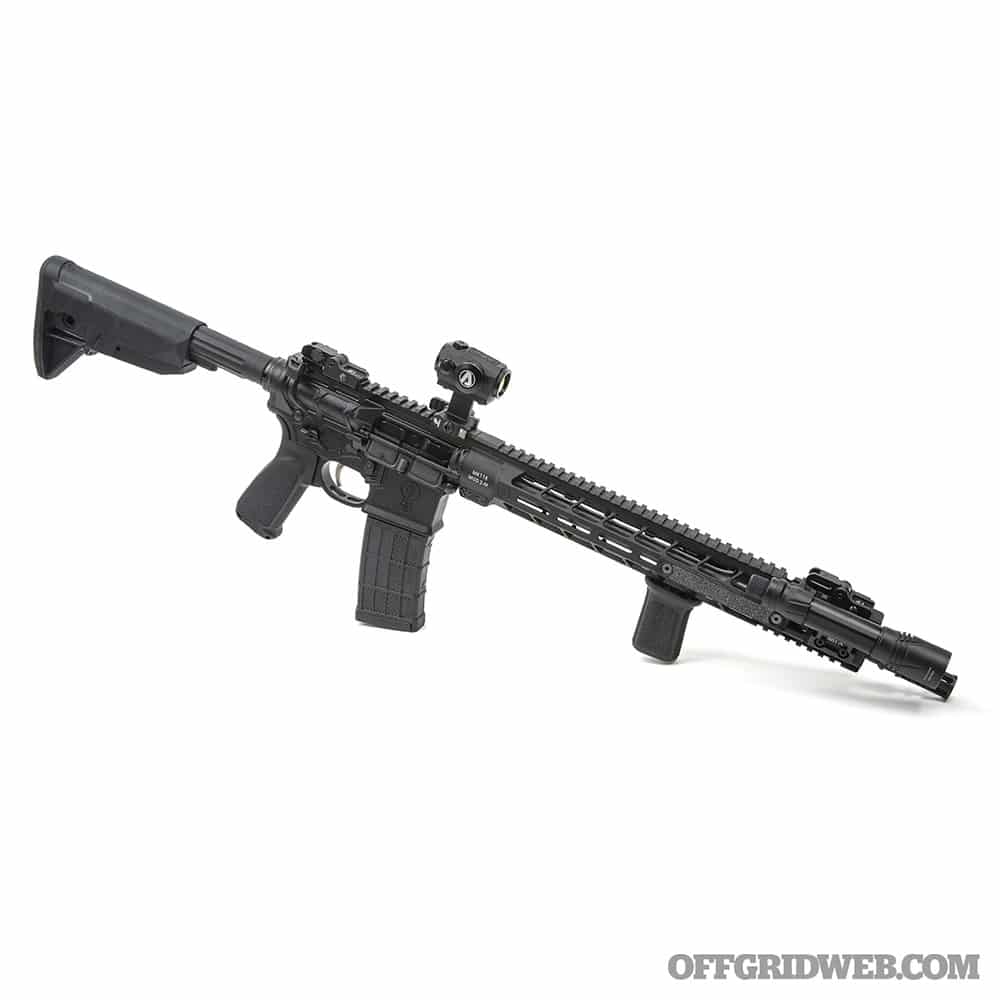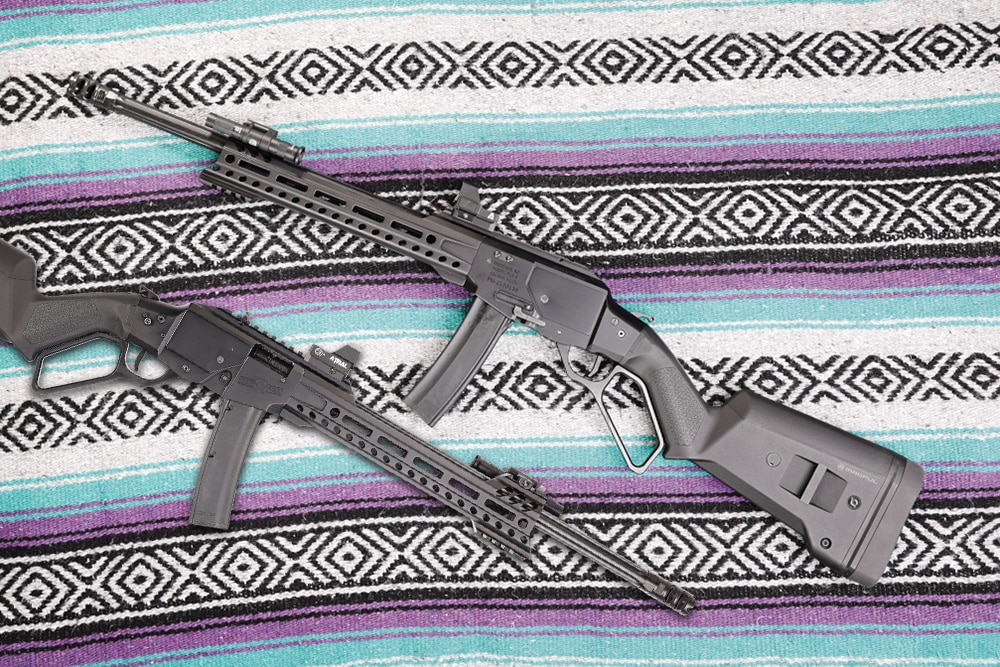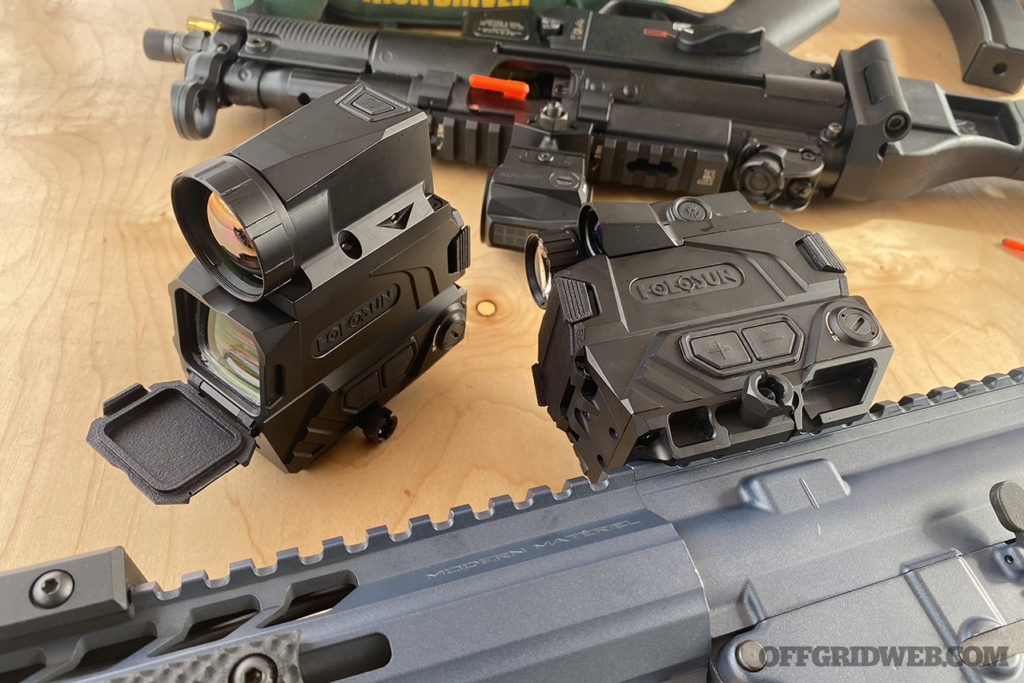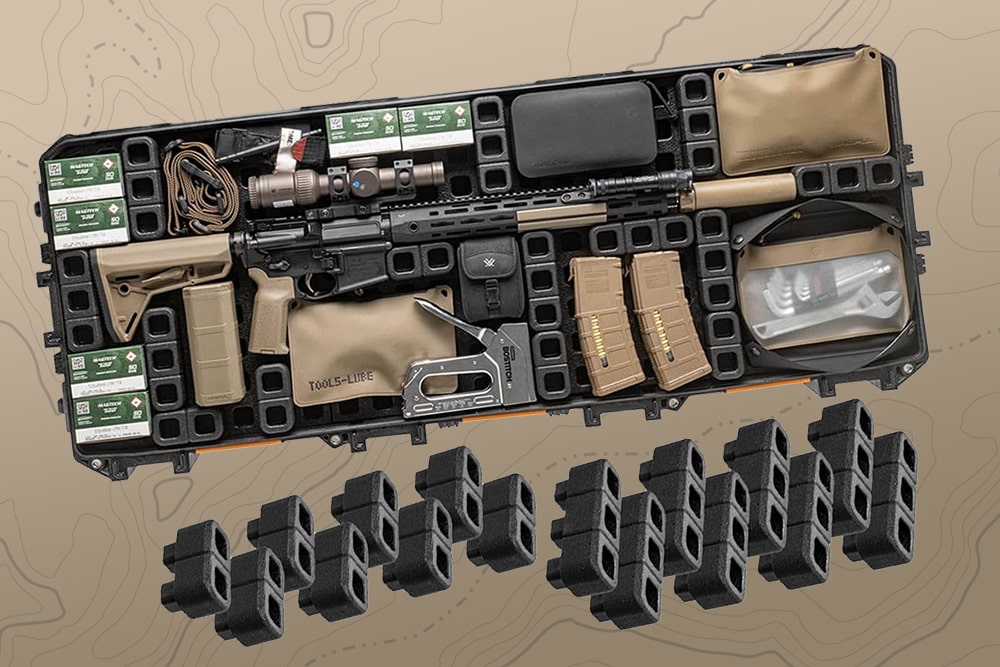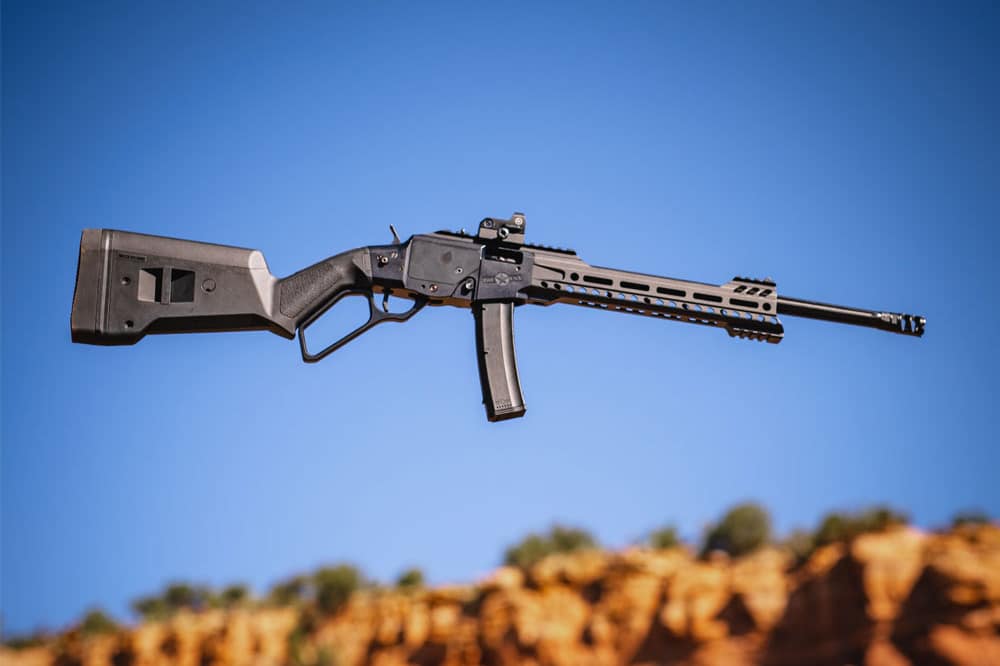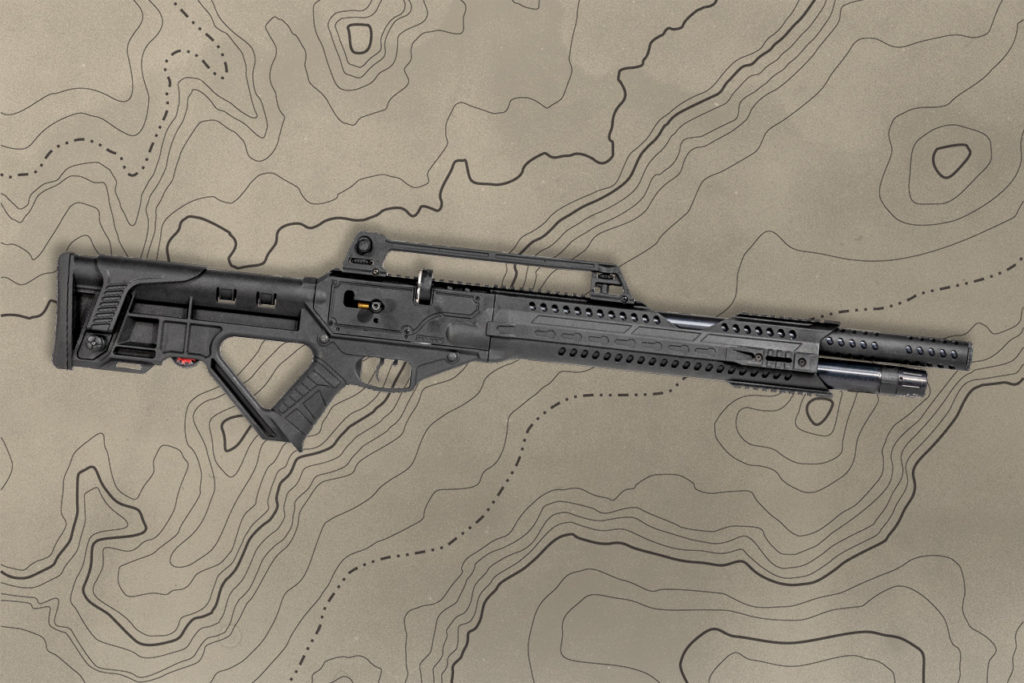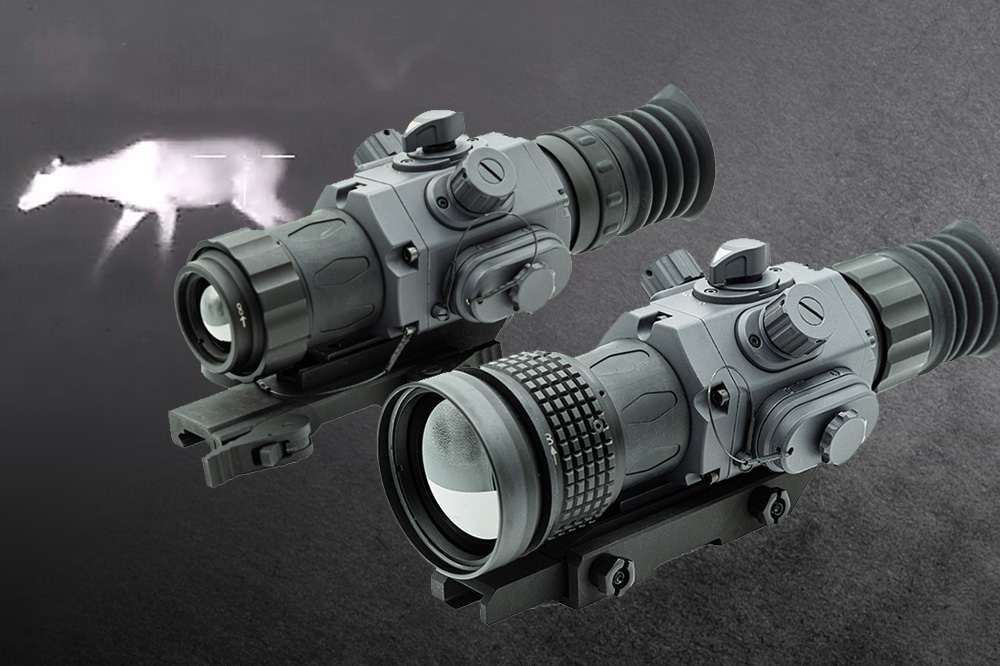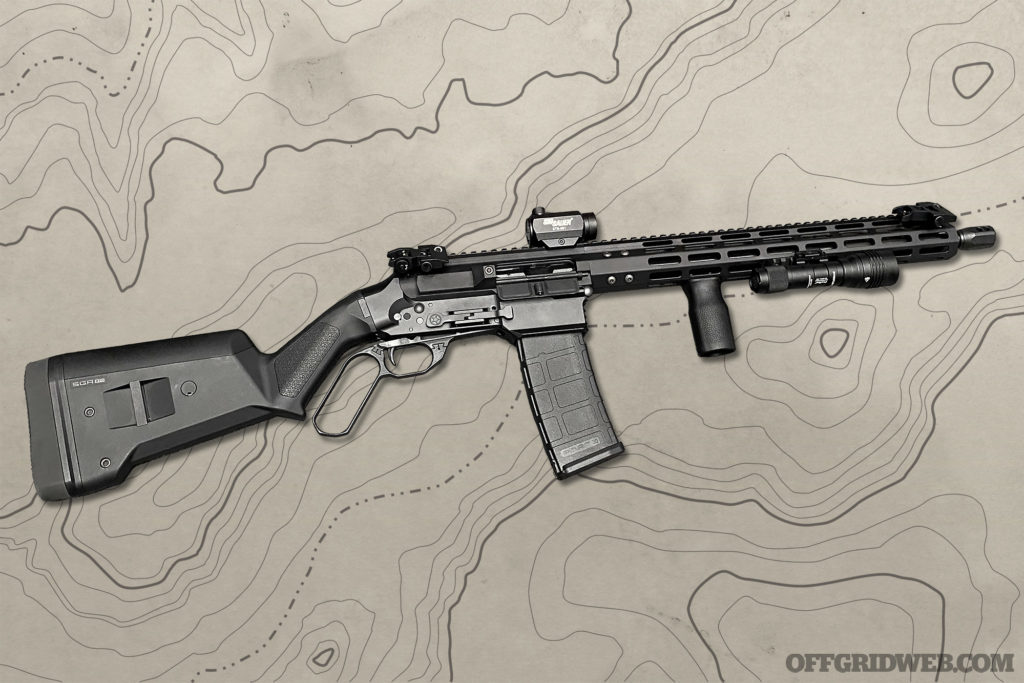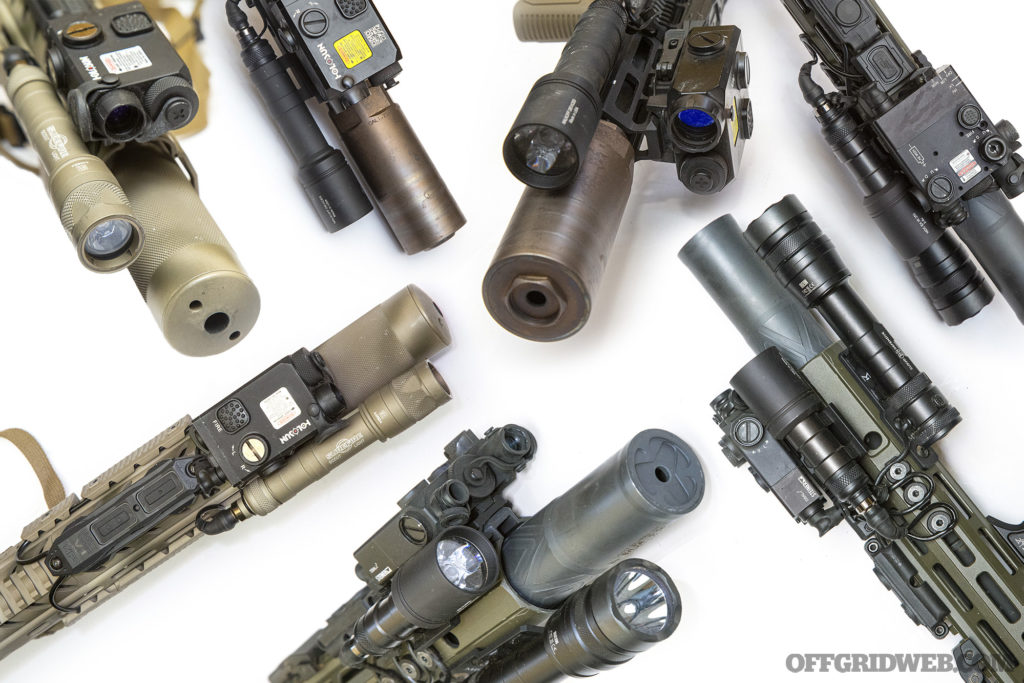What’s the big deal with ambi AR-15s? Whether you’re right-handed or left-handed, short of a catastrophic injury or amputation, you’ll never be fully dependent on one hand. This is why many experienced shooters no longer use the terms “strong side” and “weak side,” instead favoring dominant/non-dominant or strong hand/support hand. Your “weak” side can’t be weak, because it’s essential for recoil management, reloads, and other critical tasks. Just as you wouldn’t type an essay or cook a meal with one hand tied behind your back, you shouldn’t put all the workload on your dominant hand while using a firearm.
By using dominant/non-dominant or strong/support terms, it’s easier to remember to work on maximizing the effectiveness of both hands. In other words, we’re trying to become ambidextrous, even if we still naturally favor one side. This allows us to shoot from either shoulder and make the most of available cover, and also streamlines two-handed weapon manipulations. Achieving ambidexterity mostly requires practice, but selecting a weapon that’s set up for ambidextrous use is also an important piece of the puzzle.
Above: The PWS MK116 MOD 2-M features fully ambidextrous controls, including a left-side mag release.
This is why many firearm manufacturers have moved towards ambidextrous designs in recent years — aside from basic mil-spec models, it’s rare to see an AR-15 without at least an ambi safety selector or ambi charging handle these days. However, fully ambidextrous ARs are still relatively rare.
To be considered fully ambidextrous, the following controls should be easily operable by the left or right hand:
- Safety selector
- Charging handle
- Mag release
- Bolt release
- Bolt catch/hold-open
The last item is especially uncommon in ambi form, but quite useful for quick malfunction clearance or “unload and show clear” requirements between competition stages or training drills.
The PWS MK116 MOD 2-M
Over the last 14 years, Primary Weapons Systems (PWS) has made a name for itself by manufacturing premium ARs with its signature long-stroke piston system. For those who may be wondering what a long-stroke piston is, we’ll point back to Editor Iain Harrison’s summary from Issue 13: unlike the short-stroke pistons found in rifles such as the SIG MCX, FN SCAR, and Heckler & Koch MR556, “the long-stroke piston and op rod are attached to the bolt carrier in much the same way as an AK platform. While this long-stroke system usually results in a touch more felt recoil due to increased reciprocating mass, there are benefits to be had in terms of fewer parts to fail.” Current PWS models also feature an adjustable gas regulator that allows the user to tune the system for suppressed or unsuppressed use.
The PWS MOD 2-M is the company’s flagship AR line. Until recently, the MOD 2-M featured a forged lower with an ambi safety selector, mag release, and bolt release. The lower also features a flared magwell, integral trigger guard, and subtle contours that make it clear it isn’t a standard mil-spec component. The forged upper features similar contours, no forward assist, and a Radian Raptor ambi charging handle. Another distinctive feature of the MOD 2-M is its PicLok handguard, which has sections of Picatinny rail with recessed, threaded slots that also accept M-LOK accessories.
In June 2022, PWS rolled out an update for the MOD 2-M family of rifles. This centered around a forged lower receiver which was redesigned to accommodate a new bolt catch/bolt release lever with double-sided paddles on the left and right. This addition makes it a true fully ambidextrous rifle, allowing the user to easily hold the bolt or send it forward using one finger on the dominant hand.
After checking out this updated MOD 2-M design at our CANCON 2022 event in Georgia, I knew I wanted to spend some more time with it. I already own a few billet receiver sets with ambi controls (ADM and Ascend Armory) but those receivers can be quite expensive and aesthetically flashy. The more-utilitarian forged lower is appealing, especially as part of a complete package with PWS’s long-stroke system, so I selected a PWS MK116 MOD 2-M. To break that name down, MOD 2-M is the family, MK1 means it’s an AR-15 platform (MK2 is AR-10), and the 16 obviously corresponds to barrel length.
Accessories
I set up my PWS MK116 MOD 2-M with an Atibal XRD red dot sight, which offers 40,000 hours of battery life and a motion-activated function to maximize longevity. The XRD uses an Aimpoint Micro footprint, which allowed me to attach it to a taller ADM 1.93-inch Lightweight mount. I find the heads-up shooting position with this mount more comfortable, and it also enables easier use for passive aiming under night vision. The quick-detach function allows fast removal of the dot so I can access the Geissele backup iron sights I installed.
For low-light use, I wanted a weapon-mounted light that would integrate smoothly into the PicLok handguard, but I decided to go a little outside the box. This HRT Tactical AWLS light produces 1,700 lumens and 90,000 candela from an 18650 rechargeable battery. The most distinctive feature is its Valhalla Tactical ODA tailcap, a joystick-like activator that can be pushed in any direction for momentary mode, or clicked in for constant-on. The included MLOK screws are threaded directly into the PicLok handguard to secure the light. Although the pictured sample is a pre-production prototype, the HRT Tactical AWLS is now in full-production and available for purchase.
Finally, I added a BCM MLOK Vertical Grip to match the BCM pistol grip and buttstock PWS provided, and I installed a pair of Walker Defense Research NILE silicon carbide MLOK rail panels for extra grip. This MOD 2-M already came with some of my favorite AR add-ons — Radian Raptor charging handle, Radian Talon safety selector, and PWS’s own QD-socket-equipped Ratchet Lock Castle Nut and End Plate — so I had no need to swap out those parts. I did, however, disassemble the Talon selector and reinstall it in 45-degree configuration rather than the 90-degree configuration PWS chose.
Above: The included Radian Talon safety selector can be set to 45 degrees (pictured) or the more traditional 90 degrees.
At the Range
Above: The MK116’s recoil impulse felt smooth with 55gr M193 ammo. This photo shows the standard lower-1/3 mount on the red dot, rather than the 1.93 ADM mount we upgraded to later.
I loaded up the included Lancer L5-AWM mag with some 55-grain training ammo, flicked the 45-degree safety, and started shooting. After many years behind direct-impingement (DI) ARs, PWS’s long-stroke system feels noticeably different. The recoil impulse is smooth, more like a steady push than a sudden punch. Rapid strings of fire feel manageable.
Above: A cutout in the top rail behind the front sight provides access to the gas regulator, which can be adjusted using the included tool or the tip of a bullet.
The piston system should also keep the gun cleaner than a DI gun; this appeared to be the case after my time on the range — the BCG wasn’t coated in nearly as much crud as I’d normally expect. Another advantage of a piston-driven AR is its ability to accommodate a suppressor without the unpleasant gas blowback and dramatically increased fouling/carbon buildup typically seen on suppressed DI guns. With this in mind, PWS’s built-in gas regulator has three positions:
- Position 1 – Unsuppressed
- Position 2 – Suppressed with lighter loads and/or suppressors with lower backpressure
- Position 3 – Suppressed with heavier loads and/or suppressors with higher backpressure
I plan to install a suppressor on this rifle in the future, but for now I evaluated it unsuppressed. The PWS FSC 556 muzzle device is primarily designed as a compensator, so it does a nice job of moderating recoil, but it also offers plenty of flash reduction for low-light/no-light shooting.
As for the ambi controls, I found them intuitive and easy to use. The left-side mag release is similar in size, shape, and placement to the right-side button, only ¾-inch lower on the receiver for clearance. The bolt release/catch is also similar on both sides of the rifle, but positioned slightly further back on the right side to clear the ejection port cover. All of these controls are raised and textured enough to be found and manipulated easily with gloves on. Granted, users with smaller hands may have some trouble with stretching an index finger to press the right-side bolt release, but I had no such issue with my oversized catcher’s mitts.
Overall, the PWS MK116 MOD 2-M feels like a top-shelf production AR, and I have no doubt it’d hold up to duty use. Subjectively, I think it looks great as well — not too plain or too flashy. Although I did add an optic and a few accessories for personal preference, I didn’t feel the need to start upgrading internal parts, controls, or furniture — it’s good to go right out of the box. One possible exception is the PTFE-coated Mil-Spec Enhanced trigger; while smooth and precise, its 6-pound pull weight is definitely heavier than what I’m used to. Short of a suppressor, that’s the only upgrade I’m planning on.
PWS MK116 MOD 2-M Specifications
Overall Length: 33 inches
Barrel Length: 16.1 inches
Caliber: .223 Wylde
Capacity: 30+1
Weight: 8.2 pounds (with accessories, unloaded)
MSRP: $2,050
URL: primaryweapons.com
Accessories:
- Atibal XRD red dot sight ($150)
- ADM Micro T1/T2 Lightweight Mount ($130)
- Geissele Folding BUIS ($200)
- HRT Tactical AWLS ($295)
- BCM Vertical Grip Mod 3 ($21)
- Walker Defense Research NILE 3-Slot MLOK Panels ($39)
Price as Configured: $2,885
Related Posts
The post Review: PWS MK116 MOD 2-M Ambidextrous AR-15 appeared first on RECOIL OFFGRID.


